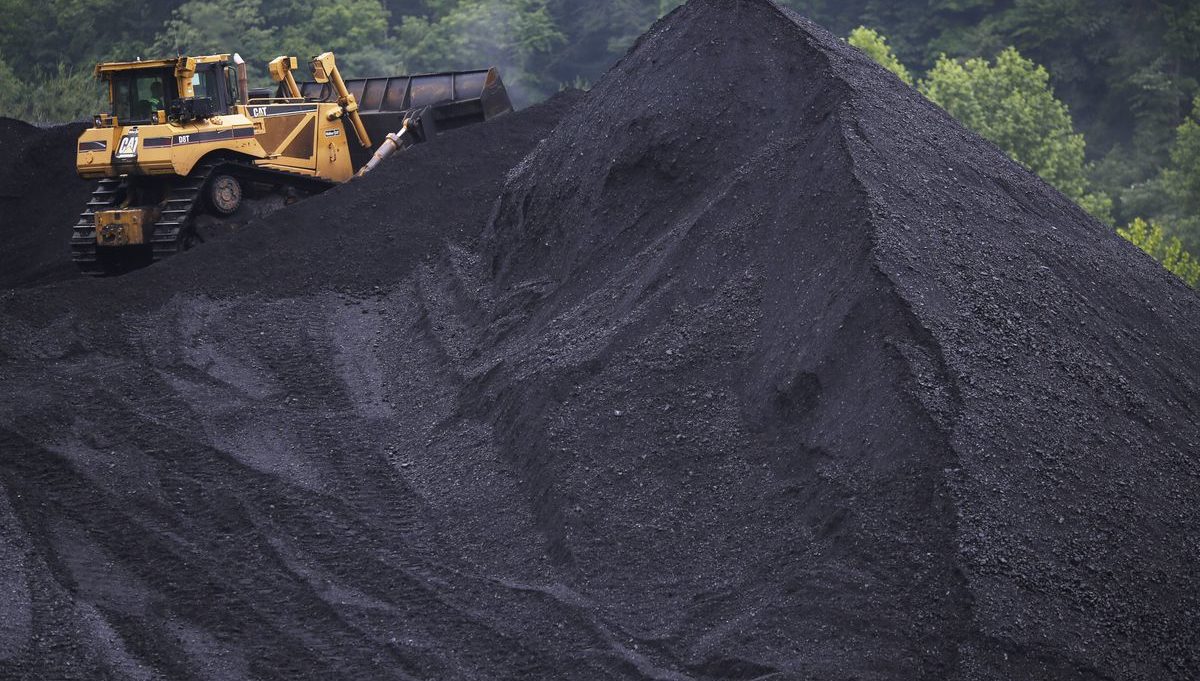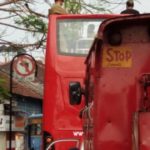Coal transportation is a major hazard that has been haunting the residents of Vasco city. The dark layer of dust on roadside houses explains much of the story. Being a port town, Vasco has been facing several pollution related problems right from the beginning.
Coal dust contains arsenic, mercury and other particulate matter. Transportation of coal/coke cargo through city roads and improper handling of this cargo inside the Mormugao Port are the two main reasons that are leading to coal dust pollution in port town of Vasco, leaving citizens to suffer.
Firstly there are two agencies at different berths inside the MPT. Both these agencies have been using different modes of transport to their destinations. It is being transported by road as well as railway. The Goa State Pollution Control Board (GSPCB) has pulled up both these agencies by issuing show cause notices for operating in a manner that has been causing environmental pollution in the city. But inspite of preventive measures, coal dust pollution has not decreased in the city. Methods to prevent dust from coal storage piles are minimal; also the transportation process is not proper, causing spillage and dust in the surrounding areas.
Residential areas in close vicinity are facing problems due to coal transportation. The level of coal pollution in and around Vasco town is high because coal is being dispatched by trucks through roads.
MMC in past had adopted unanimous resolution to stop coal transportation through the city and now I feel that if the companies cannot adhere to the pollution control norms then they should be banned from handling coal till the four-lane highway connecting Verna to MPT gets completed. Though the people of port town still believe that coal pollution has increased, MPT, however, has always claimed that coal pollution is already under control and they have implemented mitigation measures to control the same.
Coal is stacked in the open while transport trucks have a mere covering on their buckets while covering this causes dust to fly in the air, also speed breakers at regular intervals causes the coal to spill on the road. Coal handling and transportation should be carried out away from the residential areas as constant exposure to dust can cause severe lung diseases.
Coal dust particulates (tiny pieces of coal) are of particular concern because they contain heavy metals which are toxic at low concentrations. They include lead, mercury, nickel, tin, cadmium, mercury, antimony, and arsenic. Coal dust, especially fine coal dust, has been identified by health professionals and doctors around the world as causing a range of diseases and health problems. Examples include increased incidences of heart and respiratory diseases like asthma and lung cancer. The health risks increase with the level and frequency of exposure. As fine coal dust accumulates in the lungs over time duration of exposure is also a risk factor. In fact, epidemiological research suggests that there is no threshold at which it is safe to breathe coal dust.
Governments from around the world are switching over to more cleaner and efficient fuels for energy to control pollution. By further expansions of coal facilities instead of minimising we are increasing the level of pollution. Rather than relying on traditional fuels which are causing irreversible harm to the environment as well as the health of the people. Time has come to switch over to more viable and cleaner forms of energy. Coal is the least efficient of the fossil fuels in terms of the amount of energy gained vs. CO2 released. Burning it also releases numerous toxic chemicals and particulates. Coal-fired power plants that sell electricity to the grid, produces more hazardous air pollution than any other industrial pollution sources.
The community has the right to know about the dangers to them from coal dust in the air. Not much is being done to protect the health of the public at large. The government should step in and ban the coal handling and transportation operations at the earliest before it is too late.
Team TNV



























